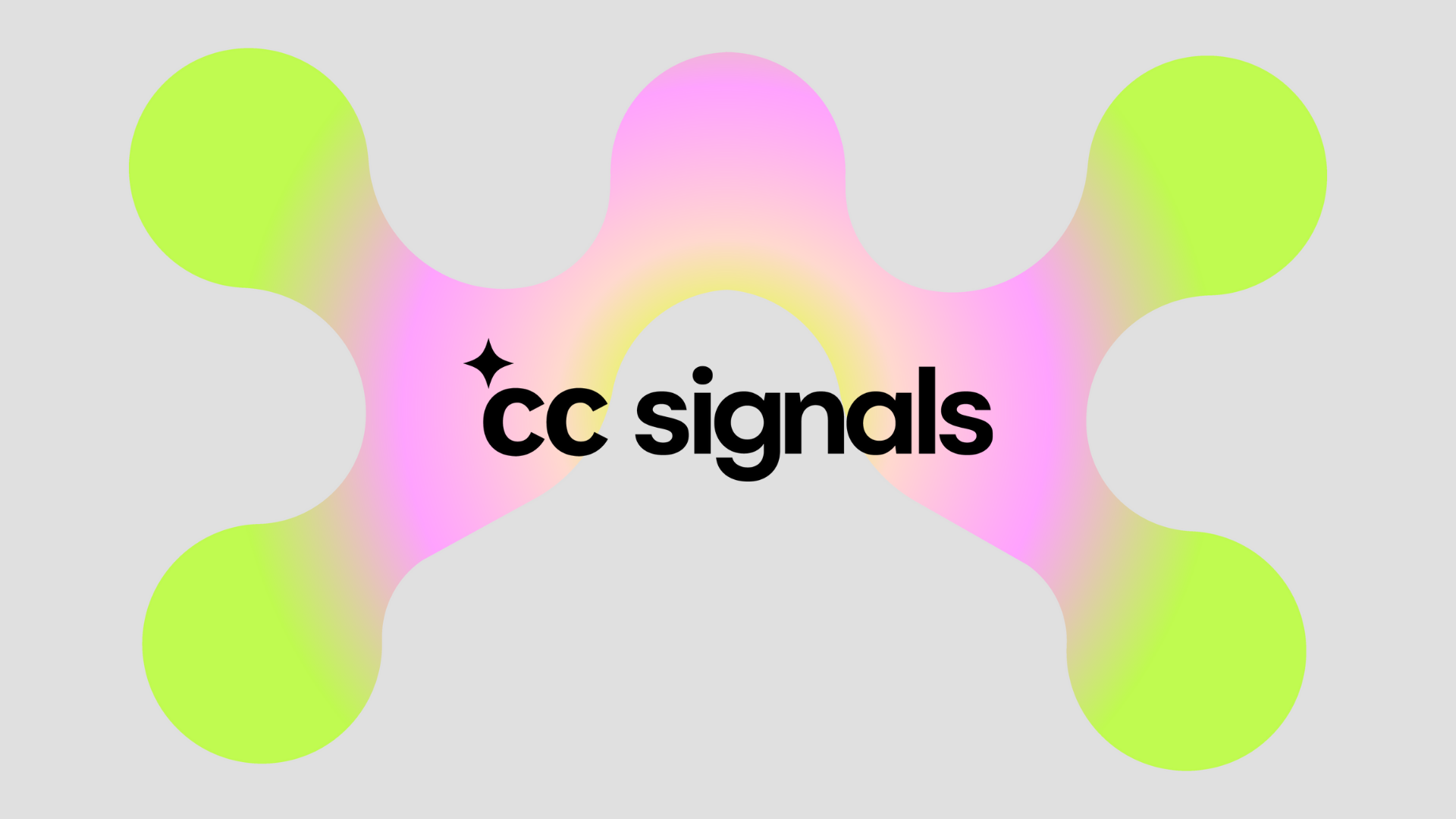
Creative Commons (CC) today announces the public kickoff of the CC signals project, a new preference signals framework designed to increase reciprocity and sustain a creative commons in the age of AI. The development of CC signals represents a major step forward in building a more equitable, sustainable AI ecosystem rooted in shared benefits. This step is the culmination of years of consultation and analysis. As we enter this new phase of work, we are actively seeking input from the public.
As artificial intelligence (AI) transforms how knowledge is created, shared, and reused, we are at a fork in the road that will define the future of access to knowledge and shared creativity. One path leads to data extraction and the erosion of openness; the other leads to a walled-off internet guarded by paywalls. CC signals offer another way, grounded in the nuanced values of the commons expressed by the collective.
Based on the same principles that gave rise to the CC licenses and tens of billions of works openly licensed online, CC signals will allow dataset holders to signal their preferences for how their content can be reused by machines based on a set of limited but meaningful options shaped in the public interest. They are both a technical and legal tool and a social proposition: a call for a new pact between those who share data and those who use it to train AI models.
“CC signals are designed to sustain the commons in the age of AI,” said Anna Tumadóttir, CEO, Creative Commons. “Just as the CC licenses helped build the open web, we believe CC signals will help shape an open AI ecosystem grounded in reciprocity.”
CC signals recognize that change requires systems-level coordination. They are tools that will be built for machine and human readability, and are flexible across legal, technical, and normative contexts. However, at their core CC signals are anchored in mobilizing the power of the collective. While CC signals may range in enforceability, legally binding in some cases and normative in others, their application will always carry ethical weight that says we give, we take, we give again, and we are all in this together.
“If we are committed to a future where knowledge remains open, we need to collectively insist on a new kind of give-and-take,” said Sarah Hinchliff Pearson, General Counsel, Creative Commons. “A single preference, uniquely expressed, is inconsequential in the machine age. But together, we can demand a different way.”
Now Ready for Feedback
More information about CC signals and early design decisions are available on the CC website. We are committed to developing CC signals transparently and alongside our partners and community. We are actively seeking public feedback and input over the next few months as we work toward an alpha launch in November 2025.
Get Involved
Join the discussion & share your feedback
To give feedback on the current CC signals proposal, hop over to the CC signals GitHub repository. You can engage in a few ways:
- Read about the technical implementation of CC signals
- Join the discussion to share feedback about the CC signals project
- Submit an issue for any suggested direct edits
Attend a CC signals town hall
We invite our community to join us for a brief explanation of the CC signals framework, and then we will open the floor to you to share feedback and ask questions.
Tuesday, July 15
6–7 PM UTC
Register here.
Tuesday, July 29
1–2 PM UTC
Register here.
Friday, Aug 15
3–4 PM UTC
Register here.
Support the movement
CC is a nonprofit. Help us build CC signals with a donation.
The age of AI demands new tools, new norms, and new forms of cooperation. With CC signals, we’re building a future where shared knowledge continues to thrive. Join us.
Posted 25 June 2025